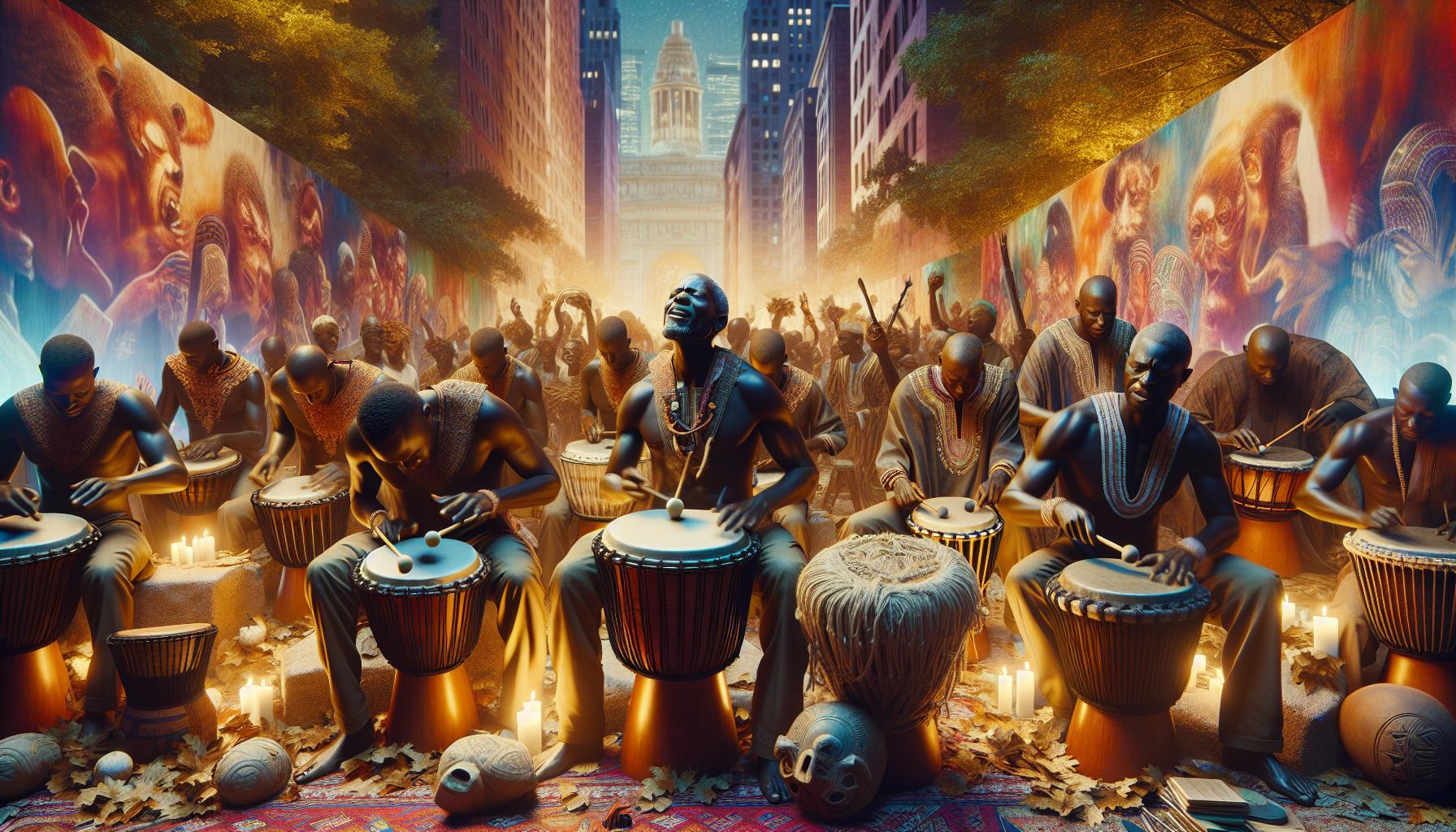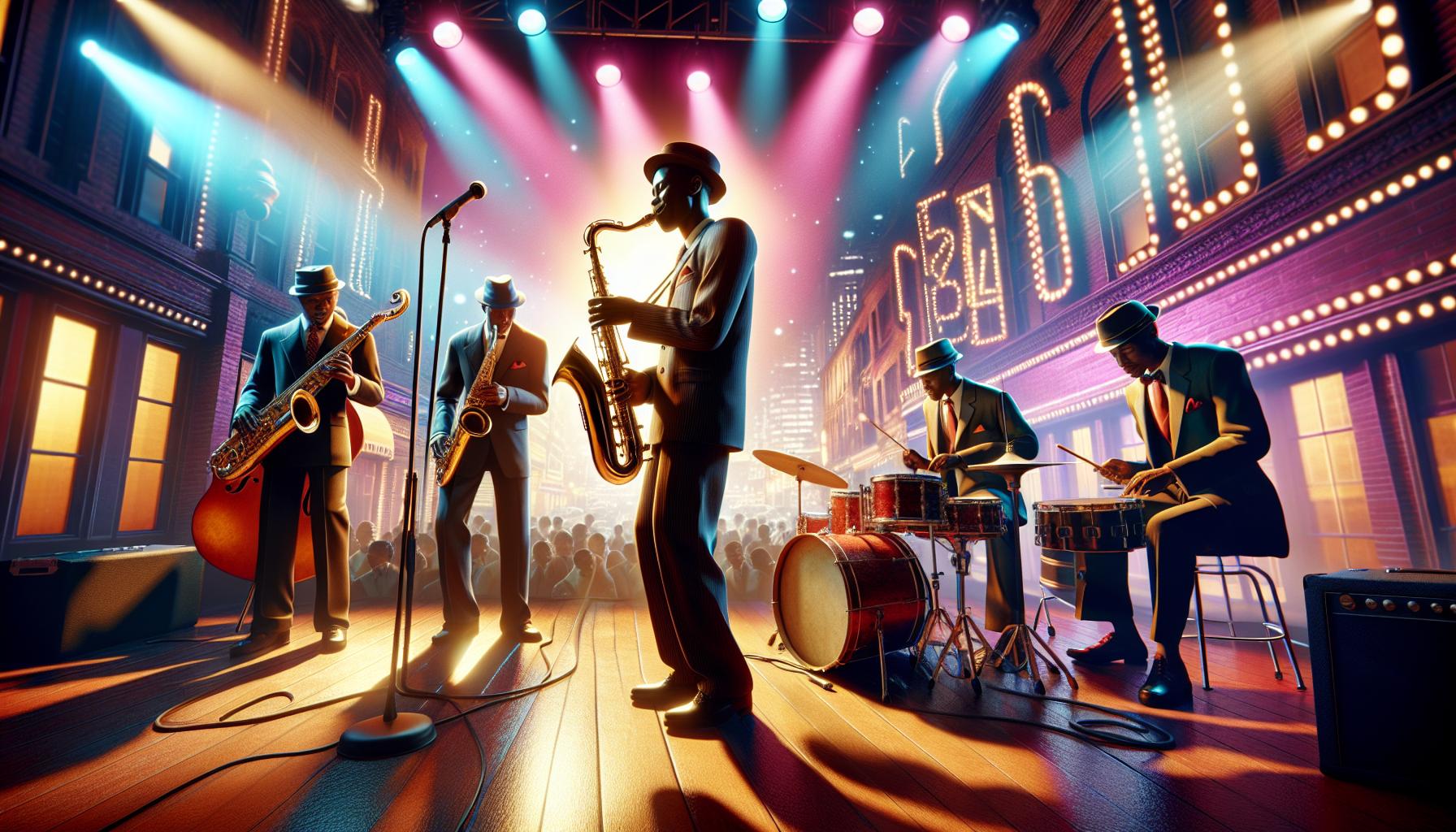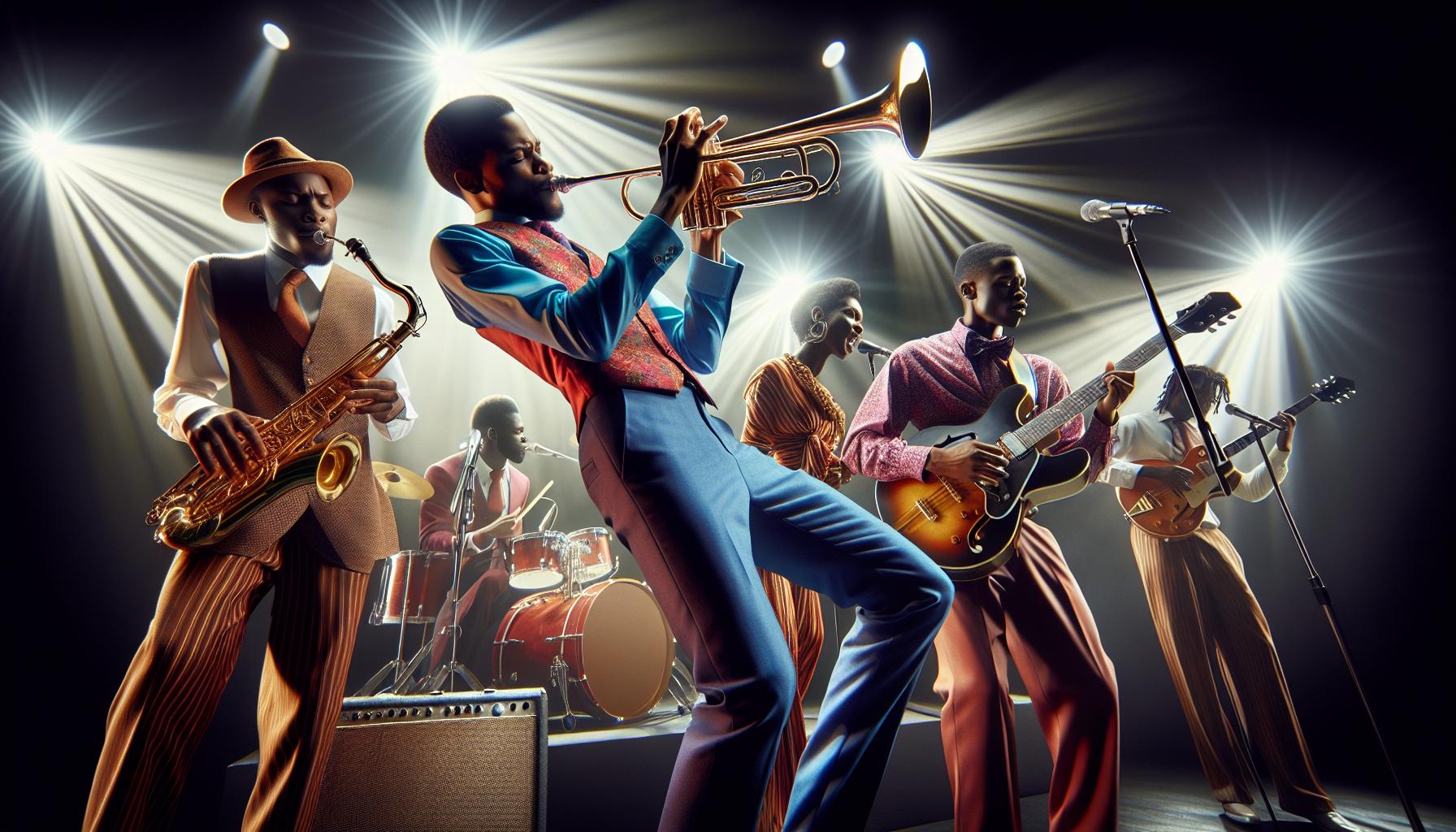Black music history is a rich tapestry woven with creativity, resilience, and cultural significance. From the soulful rhythms of the blues to the infectious beats of hip-hop, this musical journey reflects the experiences and struggles of Black communities throughout time. Each genre tells a story, echoing the triumphs and tribulations faced by those who created it.
As it evolved, Black music not only shaped American culture but also influenced global sounds. Artists broke barriers, using their voices to challenge societal norms and inspire change. Understanding this history is crucial for appreciating the profound impact Black musicians have had on the world. Dive into the vibrant legacy of Black music and discover how it continues to resonate today.
Key Takeaways
- Cultural Roots: Black music originates from the African diaspora, rooted in rich traditions and communal practices, complemented by the experiences of Black communities.
- Genre Evolution: Key genres such as blues, jazz, rock and roll, R&B, and hip-hop evolved over time, each reflecting the socio-political conditions and resilience of Black life.
- Influential Artists: Pioneers like Louis Armstrong, B.B. King, and modern icons like Beyoncé and Kendrick Lamar have significantly shaped the musical landscape, using their platforms for social commentary and cultural representation.
- Social Movements: Black music has been integral to various social movements, offering a voice of resistance and empowerment through its rhythm and lyrics, from spirituals during slavery to powerful hip-hop anthems today.
- Global Impact: The influence of Black music extends beyond borders, inspiring international genres and collaborations while shaping contemporary music worldwide.
Black Music History
Black music reflects a rich tapestry of cultural heritage, resilience, and innovation. Originating from the African diaspora, it highlights the experiences and struggles faced by Black communities. Early forms of Black music emerged in the 19th century with spirituals, which contained deep religious significance and emotional expression. These spirituals laid the foundation for contemporary genres.
The blues genre developed in the late 1800s, rooted in African American experiences in the South. It incorporated themes of hardship, love, and betrayal, influencing jazz and rock music later. Jazz, which blossomed in the early 20th century, showcased improvisation and collaboration, highlighting artists like Louis Armstrong and Duke Ellington.
The rhythm and blues (R&B) genre followed in the 1940s, merging jazz, blues, and gospel elements. This evolution led to the birth of rock and roll in the 1950s, with artists like Chuck Berry and Little Richard pioneering the genre. Hip-hop emerged in the 1970s, representing a cultural shift and addressing social issues faced by urban communities. Pioneers like Grandmaster Flash and Run-DMC popularized this genre, giving voice to the marginalized.
Throughout history, Black musicians have consistently challenged societal norms, using their art as a tool for change. They have influenced various music styles globally, shaping mainstream culture and inspiring future generations. Black music history underscores a legacy of creativity, resistance, and perseverance, resonating deeply within contemporary society.
Origins Of Black Music

Black music’s origins trace back to the African diaspora, where cultural expressions formed the foundation for contemporary sounds. These early forms reflect the richness of African traditions and the experiences of Black communities.
African Roots
African musical traditions laid the groundwork for Black music through diverse styles, rhythms, and instruments. Drumming, chanting, and call-and-response techniques characterized these early musical expressions, rooted in spiritual and communal practices. Instruments like the djembe and ngoni facilitated communication and cultural storytelling, fostering community bonds. The transatlantic slave trade disrupted these traditions but also blended them with new influences, leading to the emergence of unique musical forms in the Americas.
Spirituals And Folk Music
Spirituals developed during the 19th century as a response to the harsh realities of slavery. These heartfelt songs blended African musical elements with Christian themes, conveying hope and resilience. The use of improvisation and expressive vocal techniques showcased the emotional depth of this music. Folk music also emerged as a significant genre, with songs reflecting everyday life, labor experiences, and cultural heritage. Both spirituals and folk music not only preserved African cultural legacies but also served as powerful tools for resistance and social commentary.
Evolution Through The Decades

Black music evolved significantly across the decades, influencing and shaping cultural landscapes. Each genre reflects the sociopolitical conditions and experiences of Black communities.
Jazz And Blues
Jazz and blues emerged in the early 20th century, with origins in African American spirituals and folk traditions. Jazz, characterized by improvisation and syncopated rhythms, gained prominence in the 1920s through artists such as Louis Armstrong and Duke Ellington. Blues, rooted in sorrow and personal struggles, showcased artists like B.B. King and Muddy Waters, articulating the pain and resilience of Black life. Both genres provided a foundation for future styles, paving the way for rock, hip-hop, and more.
The Birth Of Rock And Roll
Rock and roll emerged in the 1950s, merging elements of rhythm and blues, jazz, and country. Pioneers like Chuck Berry and Little Richard fused energetic rhythms with innovative guitar riffs, capturing widespread attention. This genre not only revolutionized music but also encouraged racial integration, as Black and white artists shared stages. Rock and roll acted as a vehicle for social change, influencing the youth culture and embodying the spirit of rebellion.
Hip-Hop And R&B
Hip-hop rose in the 1970s as a voice for urban communities, combining elements of rap, DJing, and breakdancing. Artists like Grandmaster Flash and Run-D.M.C. highlighted social and economic struggles through powerful lyrics and beats. Rhythm and blues, evolving alongside hip-hop, featured soulful vocals and intricate melodies. Notable figures like Aretha Franklin and Marvin Gaye conveyed emotional depth and social commentary, impacting generations of artists. These genres collectively address the realities faced by Black communities, remaining relevant today.
Influential Artists And Their Impact

Statistics show that Black musicians significantly shaped the music landscape, driving social change and cultural evolution. Their work reflects the rich heritage and enduring influence of Black music across genres.
Trailblazers In Black Music
Trailblazers like Louis Armstrong and B.B. King revolutionized music, showcasing the emotional depth and resilience of Black life. Armstrong’s innovative trumpet playing and vocal style transformed jazz, while King’s guitar skills and storytelling in blues resonated with audiences nationwide. Artists such as Billie Holiday and Ella Fitzgerald pushed boundaries, blending jazz with sophisticated vocal techniques, influencing countless singers. Additionally, Chuck Berry brought rock and roll to the forefront, using infectious rhythms and lyrical storytelling, effectively bridging racial divides in music.
Modern Icons Shaping The Genre
Modern icons continue to shape Black music, reflecting contemporary issues and global influences. Beyoncé uses her platform to address feminism and racial justice, merging various genres, including R&B and hip-hop. Kendrick Lamar combines powerful lyrics with innovative production, exploring themes of identity and social dynamics. Artists like Lizzo promote body positivity, while Childish Gambino addresses systemic racism through genre-defying music. Their contributions not only influence today’s sound but also inspire future generations of musicians to leverage their art for social commentary and cultural representation.
Cultural Impact And Legacy
Black music has continually influenced cultural landscapes and social movements worldwide. Its legacy reflects resilience, creativity, and the profound impact of African American experiences.
Black Music In Social Movements
Black music has played a crucial role in social movements, serving as both a soundtrack and a catalyst for change. Spirituals provided solace and hope during the struggle against slavery, while the civil rights movement embraced songs like “We Shall Overcome” as anthems of unity and empowerment. Artists like Nina Simone and Sam Cooke used their music to address racial injustice, instilling strength and motivation. Hip-hop emerged in the late 20th century as a powerful medium for urban expression, with tracks like “Fight the Power” by Public Enemy advocating for social justice. Each musical genre has contributed significantly to the discourse surrounding equality and civil rights, reinforcing the idea that music is an essential tool for societal progression.
Global Influence Of Black Music
The global influence of Black music is extensive, permeating various cultures and musical styles. From reggae’s roots in Rastafarian culture to the incorporation of hip-hop rhythms in international music scenes, Black music transcends borders. British musicians like The Beatles and The Rolling Stones drew inspiration from American blues and rhythm and blues, galvanizing a cultural revolution in the 1960s. In Africa, genres like Afrobeats fuse traditional sounds with modern influences, showcasing the ongoing evolution of Black musical expression. Collaborations between Black artists and global musicians highlight the continued relevance and adaptability of Black music, underscoring its role in shaping contemporary soundscapes across the world.
The legacy of Black music is a testament to creativity and resilience. It reflects a rich tapestry of cultural expression that has shaped not only American music but also global soundscapes. From the emotional depth of blues to the powerful rhythms of hip-hop, each genre serves as a voice for the struggles and triumphs of Black communities.
As artists continue to innovate and inspire, they carry forward a tradition that challenges societal norms and advocates for change. Recognizing this history enriches the understanding of music’s role in social movements and cultural evolution. The influence of Black music is undeniable, and its impact will continue to resonate for generations to come.